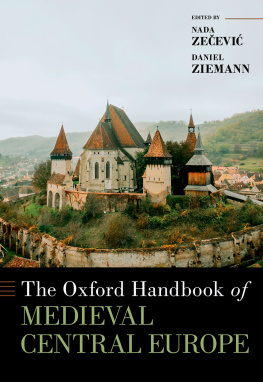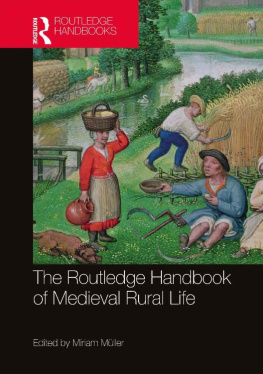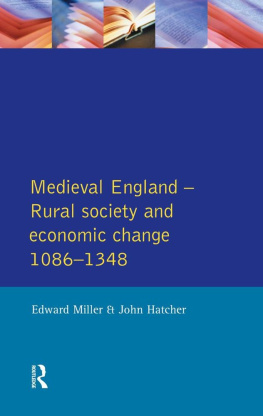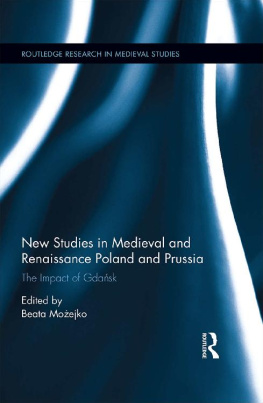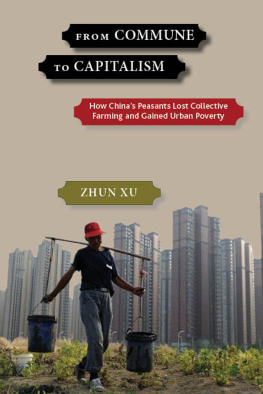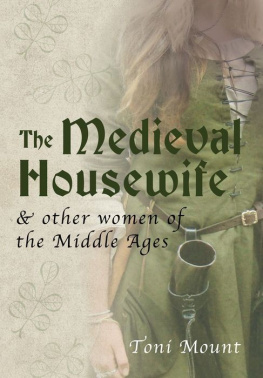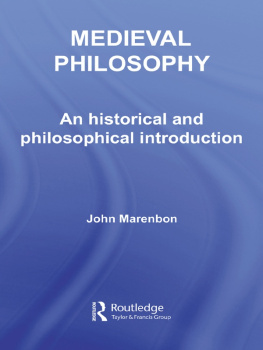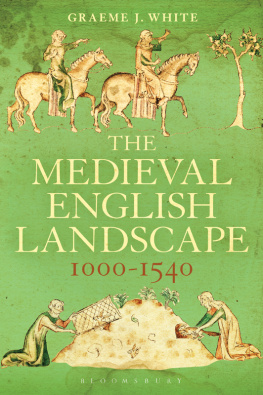
PEASANTS AND HISTORIANS
MANCHESTER MEDIEVAL STUDIES
SERIES EDITOR Professor S. H. Rigby
The study of medieval Europe is being transformed as old orthodoxies are challenged, new methods embraced and fresh fields of enquiry opened up. The adoption of interdisciplinary perspectives and the challenge of economic, social and cultural theory are forcing medievalists to ask new questions and to see familiar topics in a fresh light.
The aim of this series is to combine the scholarship traditionally associated with medieval studies with an awareness of more recent issues and approaches in a form accessible to the non-specialist reader.
ALREADY PUBLISHED IN THE SERIES
Peacemaking in the middle ages: principles and practice
Jenny Benham
Money in the medieval English economy: 9731489
James Bolton
Reform and the papacy in the eleventh century
Kathleen G. Cushing
Picturing women in late medieval and Renaissance art
Christa Grssinger
The Vikings in England
D. M. Hadley
A sacred city: consecrating churches and reforming society in eleventh-century Italy
Louis I. Hamilton
The politics of carnival
Christopher Humphrey
Holy motherhood
Elizabeth LEstrange
Music, scholasticism and reform: Salian Germany 10241125
T.J.H. McCarthy
Medieval law in context
Anthony Musson
Constructing kingship: the Capetian monarchs of France and the early Crusades
James Naus
The expansion of Europe, 12501500
Michael North
Medieval maidens
Kim M. Phillips
Approaching the Bible in medieval England
Eyal Poleg
Gentry culture in late medieval England
Raluca Radulescu and Alison Truelove (eds)
Chaucer in context
S. H. Rigby
Lordship in four realms: The Lacy family, 11661241
Colin Veach
The life cycle in Western Europe, c.1300c.1500
Deborah Youngs
MANCHESTER MEDIEVAL STUDIES
PEASANTS AND HISTORIANS
DEBATING THE MEDIEVAL ENGLISH PEASANTRY
Phillipp R. Schofield
Manchester University Press
Copyright Phillipp R. Schofield 2016
The right of Phillipp R. Schofield to be identified as the author of this work has been asserted by him in accordance with the Copyright, Designs and Patents Act 1988.
Published by Manchester University Press
Altrincham Street, Manchester M1 7JA
www.manchesteruniversitypress.co.uk
British Library Cataloguing-in-Publication Data
A catalogue record for this book is available from the British Library
Library of Congress Cataloging-in-Publication Data applied for
ISBN 978 0 7190 5377 1
First published 2016
The publisher has no responsibility for the persistence or accuracy of URLs for any external or third-party internet websites referred to in this book, and does not guarantee that any content on such websites is, or will remain, accurate or appropriate.
Typeset by
Servis Filmsetting Limited, Stockport, Cheshire
For JaneCONTENTS
ACKNOWLEDGEMENTS
The idea of writing this book was first mooted by Professor Stephen Rigby in 1996. For too long, thereafter, it existed in the half-life of a book conceived of but not yet written. That it has been published is due very much to the input of two people. One is Steve Rigby who, as series editor, has been always reassuring and, in the final stages, commenting on a number of drafts, has been the most assiduous, informed and critical (in the best sense of the word) editor. This book would be much less a contribution without his invaluable input. The other person was my wife, Jane, who died in March 2013. Jane did not let me forget that I was expected to complete this book and was gently encouraging and persistent in helping to ensure that I did. As in so much else, I owe this book to Jane and, with love, I dedicate it to her. Our children, Bethany and Thomas, are a source of constant inspiration and support, as are their grandparents (Janes Dad and my Mum), and they have helped me more than they will ever know. At Manchester University Press, Emma Brennan has been the most patient and considerate of editors. I would also like to thank Dee Devine, production editor at Manchester University Press, and John Banks, the volumes copy-editor, for their careful work seeing this through to publication. Versions of chapters were given at the following meetings: sections of , Social Science History Association, Portland, Oregon, November 2005; introductory sections, Cardiff University/Historical Association, March 2009, and the University of Girona, February 2010. I am very grateful for the comments of those attending these meetings.
PRS
26 October 2015
Introduction
T his book is an examination of the themes and approaches employed by historians in their discussions of the medieval English peasant, and most particularly in the period from the end of the eleventh to the beginning of the sixteenth century. In it we will set out and discuss the principal issues or questions which have been applied to that study and, in so doing, offer an overview and assessment of the development of work on medieval peasants since the close of the nineteenth century. Above all a presentation and a synthesis of arguments and debates relating to the medieval peasantry, the book can also be read as a case-study of historiographical development and an example of the ways in which historical theses are applied and revised both in response to current historical scholarship but also in the context of wider and more far-reaching developments.
In this introductory chapter, the broad thrust of the book is identified through both an assessment of the themes and approaches employed in the study of the medieval English peasantry and a sketch of the key historiographical phases in this area of research and writing. This sketch is also supported by a discussion of a range of possible causes of changes and developments in writing on the medieval English peasantry. Finally, with this context to the fore, we will consider historical reflection upon the term peasant and its appropriateness. While most historians working on medieval English peasants do not appear to have expressed a great deal of anxiety over definitions of the term peasant or its applicability in this period, there are some notable exceptions to this and it will be useful to consider the issue of definition and its historiographical framing at the outset.
The historiography of the medieval English peasantry: main features
In the most general terms, the historiography of the medieval English peasantry from the end of the nineteenth century, when we can first detect an attempt to examine matters pertaining to the medieval peasantry in ways that generally look to conform to the expectations of a modern historiographical tradition,
Much of the early twentieth-century discussion of the medieval economy, and of the peasants role within it, was located within and was explained by institutional structures. Some of the more important studies of medieval agrarian history produced in the later nineteenth and early twentieth centuries were directed at lordship but thereby admitted a detailed investigation of peasants as tenants. Thus, for example, A.E. Levetts examination of the Black Death on the Winchester estates has much to say about the changing obligations of the tenantry but rather less to say about peasant experience of those obligations or associated matters of peasant life


